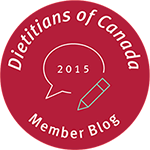Find the answers to your top 5 questions about celiac disease and lactose intolerance.
1) How are celiac disease and lactose intolerance related?
Even if you’ve started a gluten-free diet, it can take time for your gut to heal from the inflammation caused by gluten. In addition to absorbing nutrients, your gut is also responsible for producing enzymes such as lactase, which is needed to digest lactose, the naturally occurring sugar found in milk. The lower levels of lactase in your gut can cause lactose intolerance, which occurs when the undigested lactose travels into your lower gut, leading to symptoms such as a gas, bloating, stomach pain or diarrhea. These symptoms usually occur somewhere between 15 minutes and several hours later1.
2) Does the lactose intolerance go away and if so, how long does it take?
Yes, lactose intolerance due to celiac disease is temporary. Once you’ve been following a strict gluten-free diet and given your gut time to heal, the lactose intolerance resolves because your gut produces enough lactase enzymes to properly digest lactose again. Unless you’ve had undiagnosed celiac disease for many years, it usually takes a few weeks or months for your body to be able to digest it properly.
3) Is it important to consume lactose-containing foods?
Milk and milk products, which contain varying levels of lactose, are significant sources of many nutrients, including calcium and vitamin D. These nutrients are important for general health, and especially if you’ve been living with undiagnosed celiac disease because you’re at increased risk of developing osteoporosis2. To find out if you’re getting enough calcium, try the Calcium Calculator™ online tool or download the print resource
4) My gut isn’t fully healed from the gluten damage yet. Should I avoid lactose completely?
Even if your gut hasn’t fully healed, some dairy foods are very low in lactose. Click here for more tips about how to manage lactose intolerance.
5) I want to start introducing lactose-containing foods. How should I start?
If you’ve been avoiding all dairy products, start slowly by choosing small amounts and eating it with other foods. You can then gradually increase your intake by following the guidelines found here.
Discuss your plan with your gastroenterologist or dietitian for more tailored advice for you. If you aren’t currently followed by a dietitian, call 8-1-1 and ask to speak to a dietitian.
By Nicole Spencer, MEd, RD

References
- http://glutenfreediet.ca/blog/?p=52
- http://www.nature.com/ajg/journal/v96/n1/abs/ajg200120a.html
